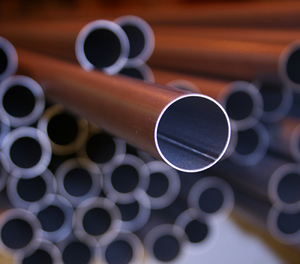This article is more than 1 year old
Forget value-added broker jokes: Could YOU shift nuclear plant scrap?
The stock doctors: What they actually DO (besides talk)
Why do brokers exist? All we ever do is just sit around and talk to people, so what value do we add to the economy? Or what value do “asset managers” like the late Howard Strowman add? And will the existence of such be a permanent feature of the tech distribution landscape?
Regular readers will know that I spent the 1990s wandering across the blasted heath that was the economy of Russia after the collapse of the Soviet Union.
One little tale from those times: I once sold 60 tonnes of nuclear power plant scrap to be turned into car wheels. Not used scrap of course, rather the stuff left over from making the fuel rods. These are, in the Soviet system, made of a zirconium/niobium alloy (the Western world uses Zr/Sn). The tubes are also made to a standard length, but the bottom of a reactor is curved so the actual fuel rods are of different lengths. Thus, before they're filled up with uranium and other delicious goodness they're cut to size. Leaving lots of little orphan tubelets.
Back then the plants that made the new tubes were all closed, so there was no recycling to be done by them, there's no point in trying to run them through the Western Zr scrap plants because it's an entirely different alloy. So what to do with this pile that we were being offered? Zr is used in some aluminium alloys, usually a 1 per cent or so addition. But no one wants the Nb: not a good thing to have in such alloys. However, there was one bloke in Rotterdam who had worked out that under 0.01 per cent Nb (100 ppm) was fine and the Russian nuclear alloy was 1.1 per cent Nb. So, if he mixed in a bit of pure Zr scrap and only wanted 1 per cent Zr in the Al alloy then the Nb would be diluted below 0.01 per cent and thus he was willing to pay bottom feeding fire-sale prices for this nuclear scrap.
The job of the broker is to know this shit: there's no reason why the bloke running the fuel rod filling plant should, he's got other things on his mind. And this broker did know this shit and after contacting the friendly local smuggler (without, of course, mentioning the need for a nuclear goods license) shipped three trucks worth off to be made into MAG alloy wheels for cars.

A tube is a tube, right? Asset managers make their money
from having killer ideas.
This broker learnt all this through the time-honoured practice of spending weeks and months gossiping to every other broker and thus learning stuff. Like who recycles broken germanium lenses, why gallium could be bought in Moscow in 2 litre Pepsi bottles (they were draining it from the solar neutrino experiment) and even who the only two people in the world were who used scandium to make light bulbs.
Stick it in the warehouse... we'll find a use for it later
That's nothing at all to do with the tech distribution channel of course: but brokers do exactly the same thing there as well. There's a whole host of companies out there that are little more than a phone line and some cheap (but dry) warehousing.
Every day someone hoicks out the old kit (the PDPs, VAX, whatever) and installs the new shiny-shiny. That old kit going into said warehousing to be brought out again when one of the remaining users of the old (PDPs, VAX, whatever) needs a replacement bit. For they're not making the spares anymore but there are indeed those machines being hoicked out. The only important things you need for such a business is a bit of cash and the knowledge of who is still using the old and who is hoicking it out. And this is exactly the sort of thing you learn by simply talking to people on the phone for a few years. Which is why brokers actually do little more than that.
There are myriad little niches for brokers in any and every part of the economy. I know one who brokers used cooking oil from chippies (used to make biodiesel). A merchant or investment banker is nothing else, he's just brokering money between those who want to invest and those who desire investment. I've worked for a bloke who shipped used ink jet cartridges around four different countries (the trick there being knowing who can refill which cartridges). The game is essentially to know more, in your specialist area, than anyone else you come across. There's little point in the chippy owner investigating how to process 1,000 tonnes of cooking oil. But there's great point in someone collecting from 500 chippies knowing how to do it.
